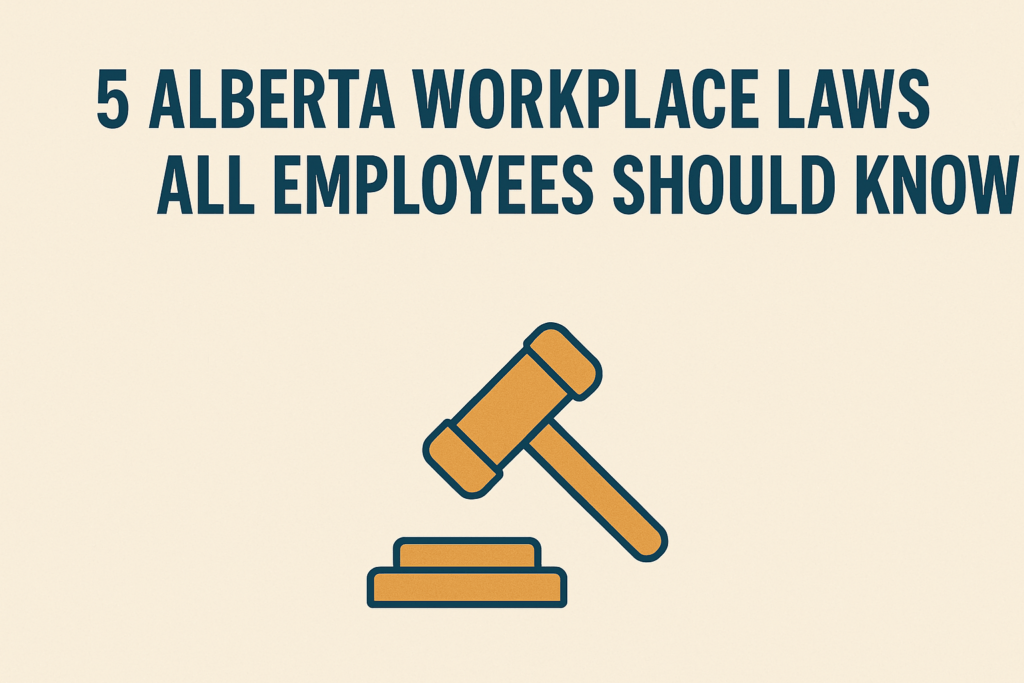According to the Ontario Human Rights Code (OHRC), every Canadian has a right to equal treatment in employment without discrimination because of race, color, ethnic origin, ancestry, place of origin, citizenship, sex, creed, gender identity, sexual orientation, gender expression, age, record of offenses, family status, marital status, or disability.
The rights of foreign workers in Canada are also protected under provincial/territorial labor laws.
There are employment laws set out that all employers must provide to their employees in Alberta – 5 of which are noted below:
Basic Rules
The Canada Labour Code sets labour protections for selected industries across the nation, such as air transportation and telecommunications. For other industries, each province can establish its own minimum requirements.
There are some basic rules of employment that employees across Canada are entitled to. Examples of these include working hours, overtime, and minimum wage.
Employment Equity
Canada’s Employment Equity Act helps to ensure that everyone in Canada has the same access to the labour market.
The Act requires federally regulated employers to eliminate barriers and hire proportional representation (including managerial roles) of the following designated groups: Indigenous people, women, people with disabilities, and racialized people.
Every federally regulated business with at least 100 employees has to comply with the Employment Equity Act.
Collective Bargaining
Workplace laws in Alberta related to bargaining councils are governed by the Labour Relations Code.
The code outlines the rights of both employees and employers regarding collective bargaining and the process of union certification. Employees have the right to choose a trade union such as Alberta Teamsters Labour Union.
In Alberta, unions act as a collective voice for workers, negotiating with employers to improve working conditions, benefits, and wages. Unions also advocate for issues on behalf of represented employees.
Paid Time Off
In Alberta, employees are entitled to annual paid time off.
The minimum after one year of employment is two weeks, and three weeks after five years of employment. Vacation pay must be calculated as a percentage of the employee’s wages, as per the Employment Standards Code.
Alberta recognizes several general holidays and employees are subsequently entitled to paid time off for general holidays provided they have worked for the same employer for at least 30 working days in the 12 months preceding the holiday.
Health and Safety
The primary laws governing workplace health and safety in Alberta are the Occupational Health and Safety (OHS) Act, Regulation, and Code.
Employers are legally responsible for doing everything practicable to protect the health and safety of their employees. This includes staff training, ensuring qualified supervision, and implementing safe work policies and practices.
Employees have the right to know about workplace hazards and refuse dangerous working conditions without fear of reprisal.
Companies with 20 or more employees must establish a Health and Safety Committee, which plays a vital role in ensuring compliance and promoting health and safety in the workplace.
To End
Workplace laws in Alberta do not have to be difficult to understand. Do not be afraid to ask questions if anything is unclear.
The five guidelines above will give you a better understanding of your rights in the Alberta labour market.

